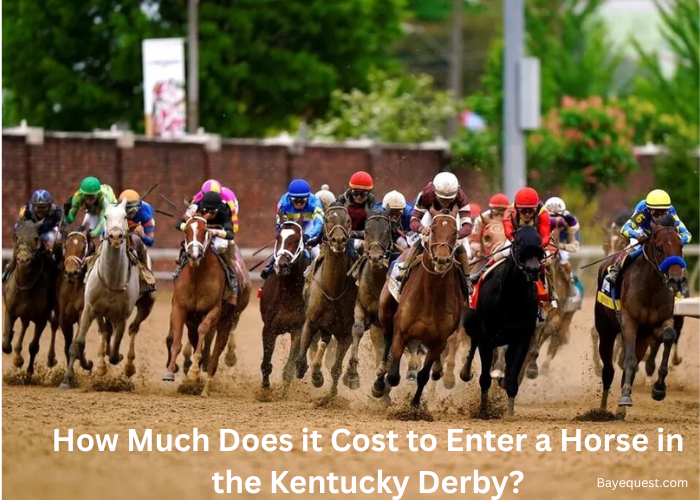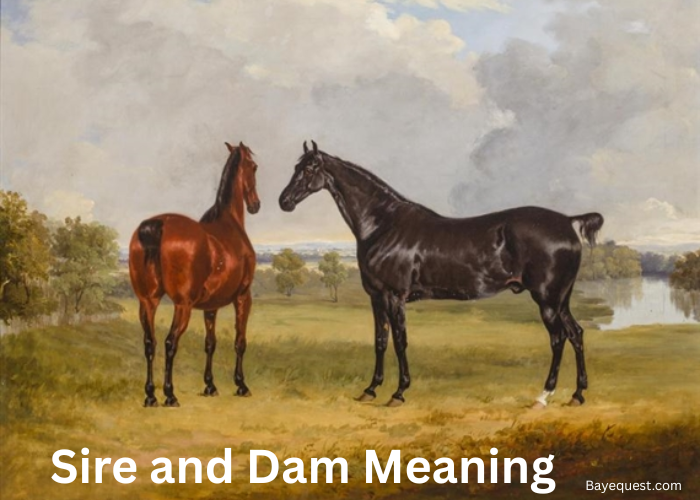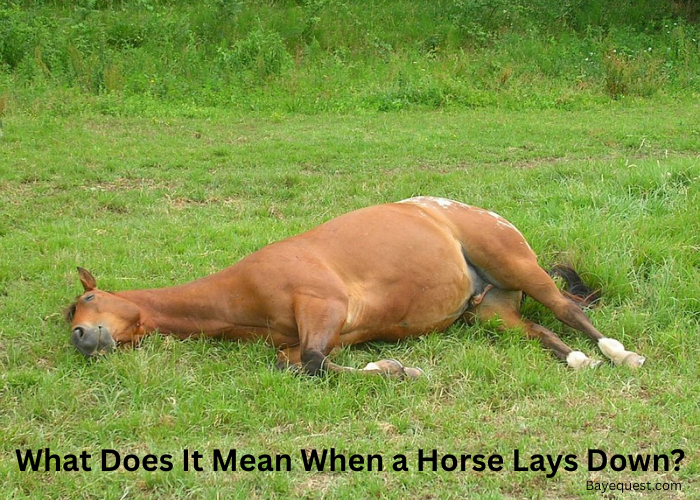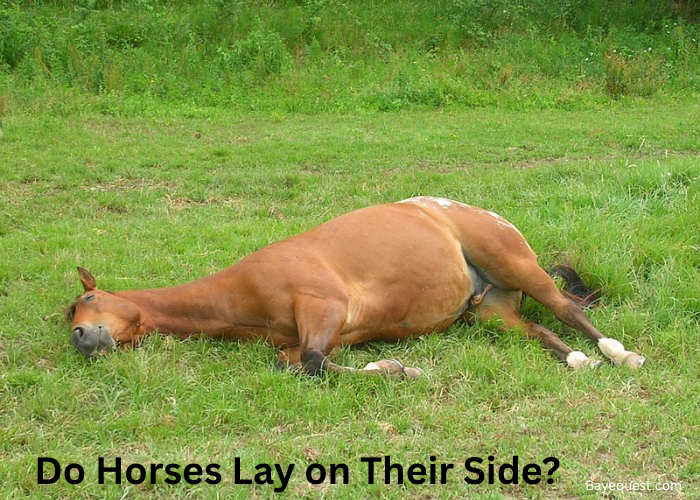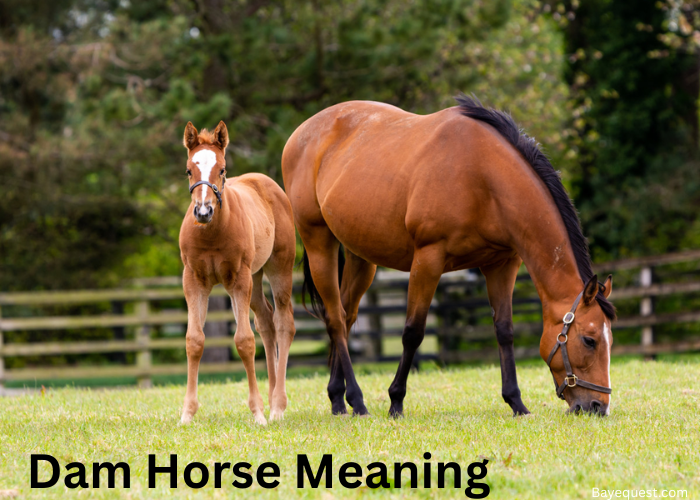Entering a horse in the Kentucky Derby isn’t cheap. It’s one of the most famous races in the world, and one of the most expensive to join.
From nomination fees to jockey costs, the bills add up fast. But it’s not just the entry price.
There’s training, travel, and even insurance to think about. Some owners spend hundreds of thousands just for a shot at glory.
Whether you’re a racing fan or a curious newcomer, knowing the real cost behind the Run for the Roses might surprise you.
Let’s break it down.
How Much Does it Cost to Enter a Horse in the Kentucky Derby? Key Takeaway
It costs $25,000 to enter and another $25,000 to start a horse in the Kentucky Derby. Add a $600 nomination fee, plus training, travel, vet care, and jockey costs. Total expenses often reach $150,000–$300,000 or more just to compete on race day.
How Much Does it Cost to Enter the Kentucky Derby?
The Kentucky Derby is the dream stage for racehorse owners, but getting there isn’t cheap.
From entry fees to training, the costs stack up fast. It takes more than a fast horse to make it to Churchill Downs.
It takes serious money. So, how much does it cost to enter the Derby? Let’s break it down.
Entry and Starting Fees
To enter a horse in the Kentucky Derby, owners must first pay a nomination fee of $600 when the horse is a yearling.
If they miss that deadline, late nominations can cost as much as $6,000 or more. As race day nears, there’s an entry fee of around $25,000, and an additional starting fee of $25,000 just to line up at the gate.
These fees are non-refundable, and they don’t guarantee a spot unless the horse qualifies. Combined, just the basic fees total around $50,000, not counting everything else.
These costs are in place to limit entries to serious contenders and help cover the purse and race-day operations.
Training and Preparation Costs
Training a Derby horse is a full-time job, and an expensive one. Most trainers charge between $75 to $120 per day, which adds up to $2,500–$4,000 per month.
Preparing for the Kentucky Derby involves months, sometimes years, of professional conditioning. That includes gallops, breezes, custom feeding programs, and track fees.
The trainer’s staff, including grooms and exercise riders, must also be paid. Horses often undergo specialized workouts designed to build stamina, speed, and race-readiness.
If the horse trains at a premier facility or under a top-tier trainer, the costs go even higher. By Derby day, owners may have spent $30,000 to $60,000 or more on training alone.
Jockey Fees
Hiring a skilled jockey is another significant cost. Most jockeys earn a mount fee between $500 to $1,000 just to ride in a big race.
But that’s only part of it. If the horse places in the top five, the jockey typically earns 10% of the purse share awarded to the horse.
Since the Kentucky Derby has a multi-million-dollar purse, jockey earnings can easily climb into the tens of thousands, or more.
Owners sometimes also pay travel expenses, accommodations, and bonuses for past wins or commitments.
A winning or well-known jockey doesn’t just ride the horse, they can increase its odds and draw media attention. The price reflects that.
Related read: How Much Does a Horse Jockey Make?
Veterinary and Health Expenses
Elite racehorses require elite care. Routine veterinary bills include vaccinations, X-rays, blood work, and preventive treatments.
Monthly costs may range from $1,000 to $3,000, depending on the horse’s specific needs. Horses also get joint supplements, anti-inflammatory meds, and special therapies like shockwave treatments or acupuncture.
Before the Derby, many undergo pre-race exams to ensure they’re sound and race-ready. Any slight lameness or health concern can lead to disqualification.
Owners also invest in shoeing by expert farriers, which may cost $300–$500 per session, and is typically done every four weeks.
Skimping on health isn’t an option. These costs help ensure the horse is at peak performance and cleared to run on Derby Day.
Travel and Logistics
Getting a Derby horse to Churchill Downs is a production. Horses travel in air-cushioned trailers or even on equine charter flights.
Depending on distance and method, transport costs range from $5,000 to $15,000. On arrival, stabling fees and security arrangements come next.
The horse’s team, trainer, groom, assistant, and sometimes a vet, also need flights, food, and hotel stays. Lodging in Louisville during Derby week isn’t cheap.
There are also miscellaneous costs: hay, grain, water buckets, stable tools, and backup supplies. Everything must be shipped or sourced locally.
These logistics ensure the horse remains stress-free and race-ready from start to finish. It’s a moving barn, and the bill reflects that.
Licensing and Insurance
To participate in the Kentucky Derby, all owners, trainers, and jockeys must be licensed in Kentucky, with fees ranging from $25 to a few hundred dollars each.
More significant, however, is the cost of insuring the horse. Since many Derby contenders are worth millions, equine insurance is crucial.
Policies cover mortality, injury, and even loss of use, with premiums running 3% to 5% of the horse’s value annually.
That means insuring a $1 million horse could cost $30,000 to $50,000 per year.
Additional liability insurance may also be required for travel, stabling, or public appearances.
Marketing and PR Costs (Optional)
While optional, marketing and PR have become big parts of Derby culture.
Owners looking to promote their horse, especially if it’s a fan favorite or future stallion, often hire PR firms.
Expenses include social media campaigns, press kits, branded gear, and professional photography. If a horse is sponsored, branded appearances and interviews may be arranged.
Some owners take it a step further, creating merchandise or mini-documentaries. Costs vary widely, ranging from a few thousand dollars to over $ 20,000, depending on the campaign’s aggressiveness.
While it doesn’t improve the horse’s performance, it builds buzz. And buzz sells, especially if that horse ends up in the winner’s circle or at stud.
Total Estimated Cost Breakdown of Entering a Horse in the Kentucky Derby
Entering the Kentucky Derby can cost well over $150,000, and in some cases, it climbs past $300,000. Here’s a breakdown of the major expenses:
| Expense Category | Estimated Cost Range |
| Nomination Fee | $600 – $6,000 |
| Entry + Starting Fees | $50,000 total |
| Training and Preparation | $30,000 – $60,000 |
| Jockey Fees | $5,000 – $15,000 + 10% of purse |
| Vet and Health Expenses | $10,000 – $25,000 |
| Travel and Logistics | $5,000 – $15,000 |
| Licensing and Insurance | $10,000 – $50,000+ |
| Marketing and PR (Optional) | $2,000 – $20,000+ |
| Total | $150,000 – $300,000+ |
How Much Does the Kentucky Derby Winner Earn?
The winner of the Kentucky Derby takes home $3.1 million out of a total purse of $5 million (as of 2024). That prize goes to the horse’s owner, who typically shares a portion with the trainer and jockey.
The jockey earns 10% of the owner’s share, roughly $186,000 to $310,000 before taxes and fees. The trainer may also receive a 10% cut, depending on their agreement.
Aside from the prize money, the real jackpot comes afterward. A Derby-winning colt horse can fetch millions in breeding rights, making the win far more valuable than just the purse.
Winning the Derby isn’t just about glory, it’s a long-term investment.
Who Can Race in the Kentucky Derby?
Not just any horse can race in the Kentucky Derby. Only three-year-old Thoroughbreds are eligible, no younger, no older.
Colts, geldings, and fillies can compete, but most Derby runners are colts.
To qualify, a horse must earn enough points in the Road to the Kentucky Derby, a series of races held in the U.S. and abroad. Only the top 20 point earners secure a spot at the starting gate.
The horse must also be nominated early, as a yearling, and be in top physical condition.
Owners, trainers, and jockeys must be licensed in the state of Kentucky to participate. It’s a selective race for the best of the best.
How Does a Horse Qualify for the Kentucky Derby?
To qualify for the Kentucky Derby, a horse must earn points through a series of designated prep races called the Road to the Kentucky Derby.
These races are held across the U.S. and internationally, and each one awards a set number of points to the top finishers.
Only the top 20 horses with the most points get to start in the Derby. A few additional horses are also listed as “also-eligible” in case of last-minute withdrawals.
The horse must also be a registered three-year-old Thoroughbred, nominated to the race, and in good health.
Winning the right races, and enough of them, is the only way to secure a gate in this legendary event.
What is the Cost of Owning a Kentucky Derby Horse
Owning a Kentucky Derby contender is a major financial commitment.
The cost starts with purchasing the horse, which can range from $100,000 to over $1 million, depending on bloodline and potential. But that’s just the beginning.
Monthly expenses for training, stabling, and feeding can range from $3,000 to $7,000.
Add in vet care, insurance, jockey fees, transport, and entry fees, and you’re looking at $150,000 to $300,000+ per year, or more for a Derby campaign.
If the horse makes it to the Derby, the total investment by race day could exceed $500,000. It’s a high-stakes game, but the rewards, both financial and legendary, can be massive.
How Much Does it Cost to Run a Horse in the Kentucky Derby? Conclusion
The Kentucky Derby isn’t just a race. It’s a rich man’s gamble with a champion’s dream.
From training bills to travel, every step toward that starting gate costs real money. But for owners chasing glory, it’s all part of the ride.
Win or lose, just making it to Churchill Downs is a badge of honor. The costs are high, but so is the thrill.
If you’re planning to enter, come prepared to spend a significant amount. Because at the Derby, dreams are expensive, and every dollar tells a story.




